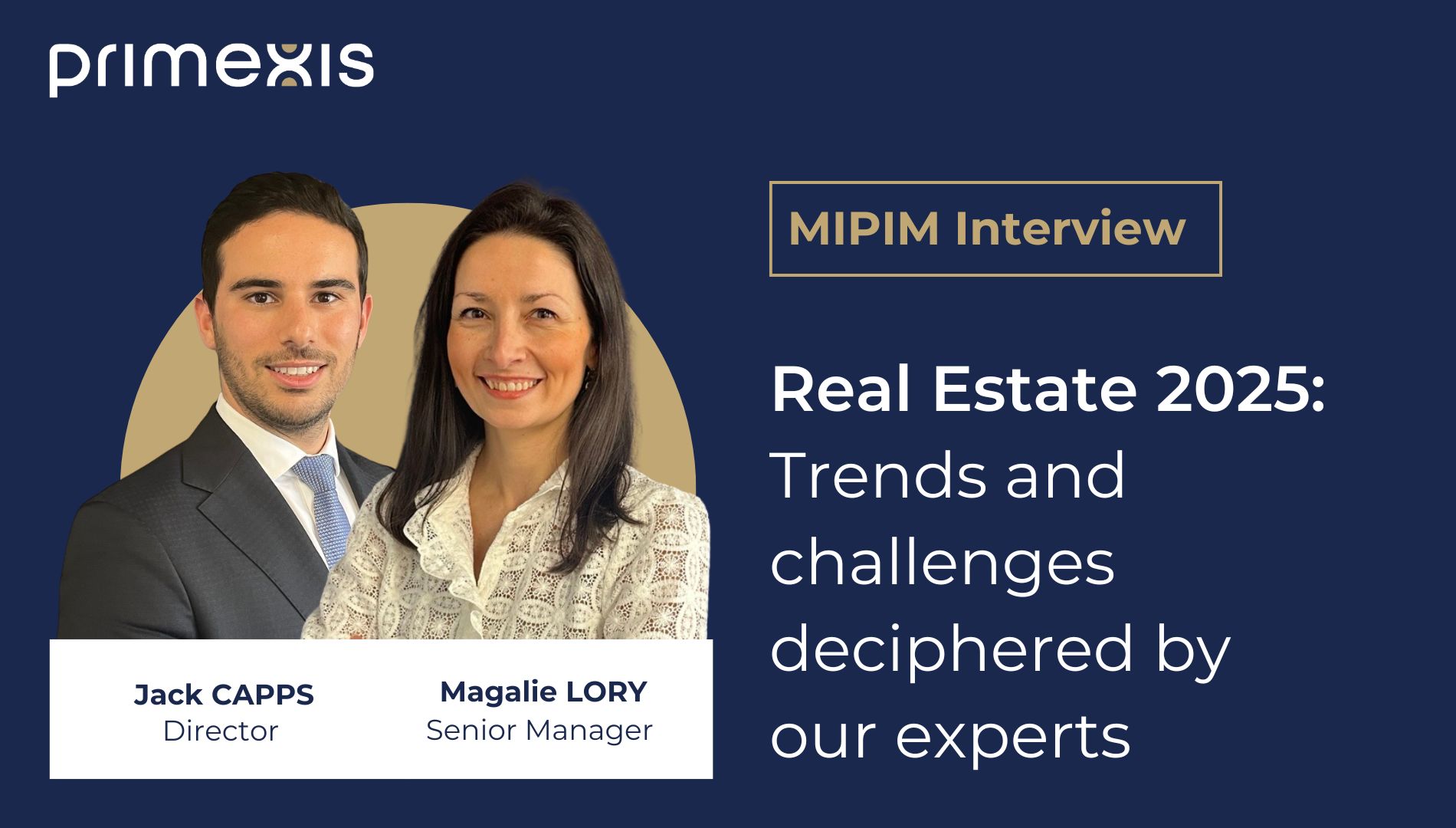Finance departments facing tomorrow’s challenges
Interview with Sébastien Courbe,
Managing Director at Primexis

At the 15th edition of the Leaders in Finance Summit, held on May 22, 2025, at the Pavillon d’Armenonville in Paris, France, Sébastien Courbe, Managing Director at Primexis, discussed the profound changes that are currently redefining the finance function. Between the increased pace of digitalization, regulatory pressure – with the CSRD at the forefront – and EPM tool development, Finance departments must demonstrate agility and vision. In an increasingly more complex environment, he shared his views of the current challenges and levers for transforming the finance function as a strategic and sustainable player.
Finance departments are developing in an increasingly tense environment, amid geopolitical uncertainty, regulatory complexity, and a digital revolution. What are you seeing on the ground with your clients?
Sébastien Courbe: This is the reality we experience every day at Primexis. We work with Finance departments facing an unprecedented pace of transformation. The regulatory framework is becoming increasingly dense, with no respite or simplification. Our role is to bring a dual response: solid technical expertise and flexible operational support to help our clients cope with these changes.
“Finance departments are facing rapid and complex transformation. Our role is to bring both technical expertise and operational agility to assist them effectively.”

Sébastien Courbe
Managing Director – Primexis
What is your specific approach to helping with these transformations?
S.C.: Primexis is a specialized accounting and operational consulting firm, recognized for its expertise in finance departments, particularly for large companies listed on the SBF 120 and CAC 40. Our 400 employees, predominantly based in the Paris region, help with reinforcing the existing teams, specifically when there are urgent requests or vacant positions but also to manage structural projects, such as regulatory transformation, tool upgrades, or reorganization.
Our assistance covers every role in the finance department: accounting, controlling, consolidation, and also information systems and management tools. Our experience as chartered accountants allows us to offer a rigorous approach, rooted in our clients’ operational reality.
You mentioned tension in human resources. Is this a widespread phenomenon?
S.C.: It’s a very pronounced reality. In recent years, it has become more and more difficult to recruit for finance departments. Added to this, there are heavy workloads linked to multiple projects: restructuring, acquisitions, transformations, etc. This generates pressure, overload, and sometimes turnover. Finance departments must respond to ever-increasing demands, with sometimes inefficient human resources.
I would say it is a bit like asking a team to score more points with fewer resources. Our role is to not only provide this essential reinforcement but also to work with the finance department to think about organization, processes, and strategy in order to achieve their objectives within this new environment.
The CSRD is a subject that has come up a lot in recent months. Where do companies stand, and what role does the finance department play in this process?
S.C.: The CSRD marks a paradigm shift. We’re moving from a CSR communication approach to a rigorous, standardized, structured and, above all, auditable sustainability reporting exercise. It’s more demanding but also more valuable.
The companies affected by the first wave will publish their first reports as early as 2025. Even if adjustments are in progress — such as the Omnibus Directive, which stipulates a reduction in obligations for certain SMEs, with a threshold increase to 1,000 employees and a 2-year deferment — the movement has started. It is necessary to start preparing for it now. This requires time, specific skills, and the right tools.
The good news is that this regulation values the role of the finance department, which is recognized as being best suited to structure data, ensure its reliability, and produce high-quality reporting. Working hand-in-hand with the CSR department allows for a long-term view and helps make the company more sustainable.
“The CSRD is not only an additional obligation but also an opportunity to provide consistency to the company’s overall performance.”
What are the current challenges surrounding EPM tools?
S.C.: We are at a major turning point for EPM tools, specifically for consolidation and reporting. The two major solutions that have dominated the market for almost 20 years will come to an end by 2030, opening the door to new software publishers. Today, several players have positioned themselves, but none have achieved unanimous approval. For CFOs, this means that they must diligently assess the strengths and limitations of the various platforms, keeping in mind a high demand for agility.
What further complicates this situation is that EPM tools are no longer limited to consolidating or managing financial performance. They are now required to integrate extra-financial reporting modules (CSRD) and international taxation modules (Pillar 2 and GloBE) and be able to change quickly.
The real challenge, therefore, is anticipation. These are structural projects with roll outs that could take two or three years. Failure to decide quickly means running the risk of exceeding the announced maintenance end dates.
My advice is clear: you need to start thinking about it now because the digital transformation of the finance department depends largely on these tools.
Aside from regulatory aspects, geopolitical tension, customs uncertainties, and inflationary pressure are making economic forecasts even more complex. What impact does this have on finance departments?
S.C.: These factors make economic forecasting particularly complex. In this unstable environment, traditional models are limited: it is difficult to make reliable long-term projections. Rigid 5-year planning is giving way to more agile management, capable of adapting quickly to changes in our environment.
This is why we encourage finance departments to implement flexible management models that can be adjusted in real time. This requires adapted information systems, more responsive processes, and teams trained in these new challenges.
The role of CFOs has never been more strategic. They are guardians of performance, architects of transformation, and drivers of sustainability. At Primexis, we are committed to providing them with the resources, skills, and agility they need to overcome these challenges and drive their company towards a sustainable future.
Click here to watch the full interview.


